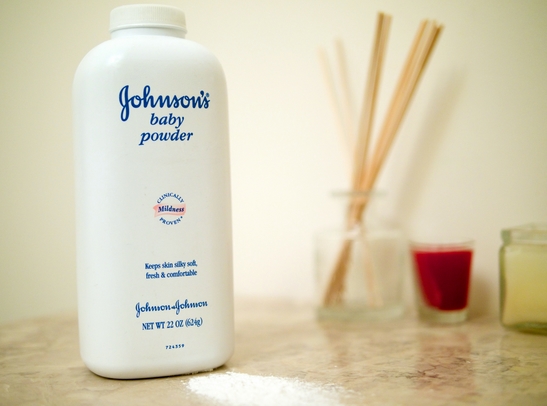Top 10 reasons to cut sugar from your diet
01/18/2016 / By Greg White

Everyone loves sweets. However, just because our bodies tend to crave sweets doesn’t mean we should indulge our sweet tooth at every opportunity. Nature tuned our ancient ancestors’ palates to enjoy sweet food because it was a rare, ample source of energy at that time. Most fruit in the wild is actually quite bitter, with honey being the sweetest naturally occurring treat.
Our environment has changed but our physiology has not. Candy bars, cakes and donuts lurk around every corner. The human body was not designed to digest the ample amounts of sugar we usually consume. The asymmetry between our bodies and the environment has given rise to mismatch diseases — maladies that are a product of culture, rather than biology. Next time you’re tempted to kill your sweet tooth, consider the following ways sugar kills your health:
1. Depression
Depression is a common mental illness that plagues society. Poor diet can play an integral role in poor mental health. High sugar intake, often caused by frequent consumption of cereals and packaged foods, may impair your mental health. Consuming too much sugar is linked to heart attack, diabetes and stroke. For these reasons, it should be unsurprising that people afflicted with sugar-related illnesses also tend to be depressed.
2. Obesity
Fried fatty foods are linked to obesity. By the same token, so too, are foods high in sugar. The excessive amount of calories in sugar fuels obesity rates in the United States. What is ironic is that sugar, which is responsible for hyperactivity in children, makes most people lethargic by causing them to gain weight. As is widely known, obesity increases the risk of many illnesses, including diabetes. Although sugar may provide short-term comfort, it definitely won’t provide long-term relief.

3. Blood pressure
Blood pressure is on the rise in America. Among all the factors that contribute to high blood pressure, sugar takes the cake. Sugar increases bad cholesterol levels, which can raise your blood sugar. High blood pressure can cause your health to decline even more by increasing the risk of heart attack, stroke and kidney failure. To keep your blood pressure down, make sure you lower your sugar intake.
4. Mineral deficiency
If you are always craving for sweet foods, it’s possible that you may have a mineral deficiency. Minerals are part of insulin production and glucose metabolism, which converts sugar into energy. If you lack minerals in your diet, you may have a proclivity to crave sweet foods. A lack of magnesium, chromium, zinc and vanadium can cause mineral deficiency. Nevertheless, adding more sugar to your diet does not tackle your mineral deficiency at the roots; rather, it only worsens it. People who frequently diet may often abandon their weight loss efforts as a result of their sugar craving. Mineral supplements may be an efficient way to curb this.
5. Heart attack
No matter what your weight is, consuming too much sugar increases your risk of heart attack. Artificial sugar present in GMO products affects your cholesterol level, which can produce blood clots. Consequently, this makes people vulnerable to heart attacks and strokes. People who take 25% more added sugar in their food tend to die from heart attacks more than those who take 10% less sugar. Free your heart valves today by cutting sugar from your diet.
6. Impaired cognitive faculties
Too much sugar can eat away at your brain as much as it can, your teeth. Research reveals that consuming too much sugar can impair various proteins that play an integral role in preserving memories and responsiveness. Children are particularly susceptible to the cognitive effects of sugar, since their brains are still developing.
7. Alzheimer’s disease
Alzheimer’s disease is prevalent in America, but it’s not limited to the elderly. People in their forties are also susceptible to the disease. High sugar intake may explain the prevalence of Alzheimer’s disease. A diet high in sugar can disrupt the production of a brain chemical called neurotrophic factor (BDNF), which helps preserve memories and recollect the past. Low levels of BDNF have been linked to dementia and Alzheimer’s. Thus, in order to preserve your memory, remember to cut back on the sweets.
8. Addiction
Sugar is a drug that can lead to addiction. Whenever you eat sugar, the brain is flooded with the pleasure-inducing chemical dopamine. This is also how cocaine works. After the sugar high wears off, the brain requires more sugar to produce the same effect. As a corollary, many people become addicted to sugar. Like any drug, sugar can also be abused. In order to minimize the risk of addiction, make sure to consume sugar in limited amounts.
9. Fatty liver disease
Whenever you eat fructose, the sugar found in fruit, it goes straight to the liver. Fructose replenishes glycogen, the chemical used to store bodily energy, in the liver whenever it’s low. Glycogen levels are only low whenever the body has exhausted its energy. Whenever glycogen levels are high, the liver stores the fructose as fat. Over time, the fat can accumulate and lead to non-alcoholic fatty liver disease. As a consequence, people who eat high amounts of sugar are prone to developing fatty liver disease.
10. Diabetes
Diabetes is probably the most common sugar-related illness there is today. It occurs whenever the pancreas fails to secrete enough insulin, the hormone responsible for converting sugar (glucose) into energy. By consuming too much sugar, the body is not able to produce enough insulin to effectively regulate sugar levels, which results in diabetes. Approximately 20 million Americans are afflicted with either type 1 or 2 diabetes. Although diabetes is one of the most prevalent diseases in America, what most people don’t know is that it is also one of the most preventable.
Sugar is by no means an intrinsic evil. It is part a well-rounded, healthy diet. By choosing to ingest too much sugar, however, we make ourselves susceptible to a host of diseases and noxious side effects. Choose is the key word here. Our choices are the cause of many diseases; and by the same token, they’re also the cure.
Sources:
Submit a correction >>
Tagged Under:
depression, diet, fatty liver disease, heart attack, nutrition, obesity, sugar
This article may contain statements that reflect the opinion of the author





















